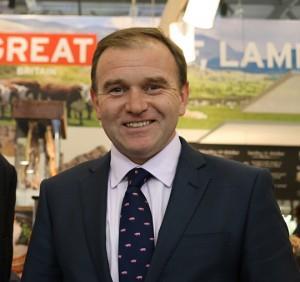Defra’s interpretation, under the forthcoming new WATOK regulations due to be laid shortly, looks set to remain unchanged in relation to sheep subject to religious slaughter, continuing to insist on individual loading into a V-shaped restrainer.
This decision appears to fly in the face of independent scientific research conducted by the University of Bristol and AHDB Beef and Lamb (formerly EBLEX) that has shown sequential restraining of lambs in a group is better for their welfare.
Defra's previous interpretation of WATOK rules compelled abattoir operators to handle and separate sheep subject to religious slaughter without stunning, raising concerns that needless distress was being inflicted on the animals. At ANUGA, earlier this week Meat Management asked Minister for Food and Farming, George Eustice, if the Government had now resolved this issue by drafting the legislation to permit sheep to follow each other into the race without unnecessary handling, in accordance with independent scientific advice?

Eustice responded that: “The evidence presented to me was for stunned sheep and on that basis the regulations would remain unchanged.”
Policy director at AIMS, Norman Bagley, responded: "It is remarkable that Defra is bringing in domestic legislation to back up the European rules at a time when there are no welfare experts in the department. All the expertise lies with industry and academia and it seems perverse that against their advice and in depth collective knowledge of current and new technologies, Defra is forcing through rules that will compromise animal welfare at slaughter.
"All informed veterinary and scientific evidence has been wilfully ignored in preference to misguided and naive advice. Industry has been pushing for changes that will lead to better welfare at slaughter, and once again we are driven to take legal measures to try and make this inept department see sense. It beggars belief."
This story was originally published on a previous version of the Meat Management website and so there may be some missing images and formatting issues.















